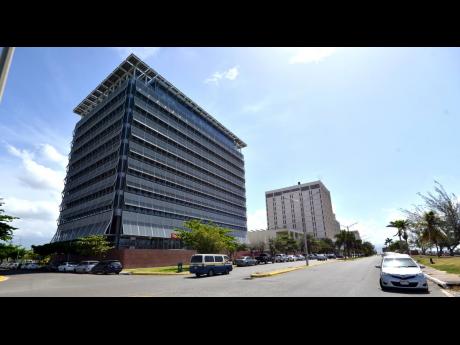Digicel bonds down by one-third since January
Investors can buy telecommunications company Digicel bonds at roughly 30 per cent cheaper than in January this year as downgrades put pressure on prices.
The discounted prices have created yields above 30 per cent. But the relatively high yield comes with concerns, according to Fitch, an American credit rating agency which downgraded the telecomS two weeks ago. The agency referenced weak liquidity, unsustainable capital structure, imminent refinancing risk and stagnant operational performance as reasons for the downgrade.
“Fitch expects that Digicel will have to restructure debt at multiple levels in the next 12 to 18 months, due to the group’s unsustainable capital structure and imminent refinancing risk,” added Fitch in a notice dated November 20.
The bonds lost roughly 10 per cent in price following the downgrade but are now mid-way recovered.
When contacted, Digicel declined to commet on the matter.
Digicel has a series of bonds on the market, but Fitch remains “immediately concerned” with Digicel’s US$1.3 billion notes maturing in April 2021.
“Fitch believes that the company will struggle to refinance amid stagnant operating performance,” stated the rating agency.
That bond started the year at US$92 then dipped to a low of US$63 in September, then to a secondary low of US$70 on November 25, before slightly rising to current levels of US$77.50. The yield is about 27 per cent. The Financial Gleaner referenced the prices on separate trading platforms which hold similar data sets, including BondEvalue from Singapore and Market Insider from New York. Another bond, Digicel Limited’s 6.75 per cent maturing in 2023 started the year at US$82 then dipped to US$48 on November 25 on the heels of the Fitch downgrade, before rising to current levels of US$58. The bond lost one-third of its price value since January. It currently holds a yield of some 27 per cent.
Fitch charged that Digicel has weak liquidity, due to its persistently negative free cash flow, high cash interest burden and the limited financial flexibility. Cash on hand at Digicel Group Limited stood at US$214 million, higher than its short-term debt needs at US177 million, reasoned Fitch.
Fitch downgraded all entities in the Digicel corporate structure, with most moving from CC to CCC. An exception included Digicel International Finance Limited (DIFL), which dipped from a B to a B-minus. Fitch added that the outlook on DIFL has been revised to “negative from stable”.
High debt-to-EBITDA ratio
Part of the concern relates to the debt level when compared to Digicel’s earnings from operations, or EBITDA. The plan was for Digicel to reduce this from 6.6 times EBITDA by one percentage point in the short term. Fitch, however, indicates that it increased to 7.5 times EBITDA at June 2019 rather than declined.
“The distressed debt exchange that Digicel Group Limited concluded in January 2019 involved an extension of maturities rather than principal haircuts or debt/equity swaps. Fitch expects increasing interest expense to consume most of the company’s declining operating income, which contributes to a cycle of cash burn,” it added.
In January, Digicel extended the timeline for the payout of bonds due by 2020 and 2022 to 2022 and 2024. Mid-year, local investment firm JMMB Group advised clients to consider selling their bonds as they were trading well below par. The firm stated that the low trading prices indicated that investors were not completely sold on Digicel’s future, even after a successful debt exchange which bought the company an extra two years on almost $3 billion in debt.
Also in the year, another rating agency, Moody’s, assigned a limited default status to the bonds following the extension, although it revised the rating to Caa1, up from Caa3.

